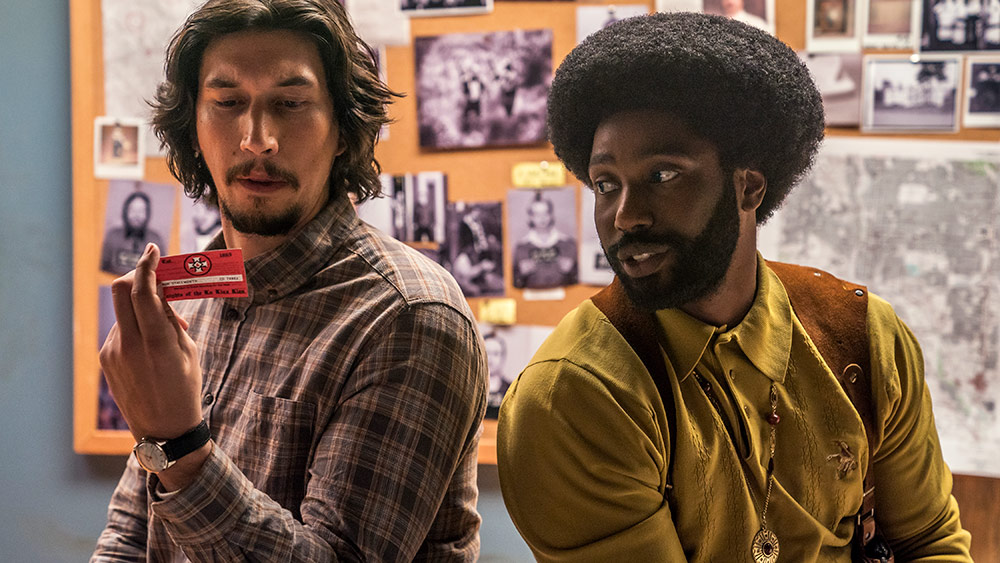I would point out the irony in me, a white male, reviewing Spike Lee’s BlacKkKlansman, a story centring around the emergence of 1970’s Black Panthers within a town dominated by the Ku Klux Klan, except it isn’t irony at all.
That’s the whole point of this movie. White people have a clear advantage over black people in society. And whether you agree with this point or not, it sure is a spectacular piece of cinema. Lee has utilised the tools at his disposal to balance elements of comedy and tragedy to leave the audience in frisson.
Based on a true story, BlacKkKlansman stars John David Washington as Ron Stallworth, an African-American detective who takes advantage of his white-as-shit name and infiltrates the Ku Klux Klan as a member. Now, all you readers are probably going to point out that even with their notorious scooby-doo pointed ghost costumes, it would be pretty obvious that a black dude is under those freshly-pressed bed sheets. Two things:
One; Ron Stallworth can speak equal parts “King’s English” and “Jive”, in his own words. And two; Adam Driver’s character ‘Flip Zimmerman’, a fellow detective, just so happens to be white.

Through their powers combined, the real Ron Stallworth mans the phone conversations with the self-proclaimed illusive ‘Organisation’, while Flip attends meetings under the moniker ‘Ron Stallworth’.
The interesting part of Lee’s execution of both the Black Panthers and the Ku Klux Klan is the similar ideologies that both parties hold for their respective race. Both spread the message of equal rights, both claim to be non-violent and act as more of a social movement than a vigilante organisation. Sure, the Ku Klux Klan have a few more redneck dipshits in this tale, but there are still characters depicted in the Klan that appear to have a level-headed nature on the surface.
Both Ryan Eggold and Topher Grace’s characters, Walter Breachway and real-life ex-Grand Wizard David Duke respectively, handle their White Supremacy organisation in a subdued professional manner. This allows contrast in the characterisations of the antagonists, playing on the stereotypes of your usual Klansman. Nevertheless, these are members of the Ku Klux Klan. You best believe they are evil.

Now don’t stress, BlacKkKlansman isn’t all doom and gloom. The interactions between Washington’s Ron Stallworth and David Duke via telephone offer hilarious dialogue, considering Duke’s assertion that he is indeed speaking to a true white-blooded American. The progression in Driver’s Zimmerman, examining his Jewish heritage for the first time, brings Zimmerman and Stallworth together in a shared naivety of their race’s struggles. Their relationship transcends racism and segregation.
Lee employs a documentary approach to his fictional storytelling, including an absolutely tragic retelling of real-life lynching victim Jesse Washington, and non-fictional footage depicting riots and modern white supremacy that continues to this day. It reminds us as an audience that although we are watching a dramatised re-enactment of a singular story, the themes and even some of the characters are very much real, and this film is not just a story to Lee. It is real life. He wants to engage you with storytelling but ultimately birth social change. And this film gets us one step closer to achieving that change.
Fun Fact:
John David Washington is the son of Denzel Washington, who appeared in four films directed by Spike Lee.




COMMENTS